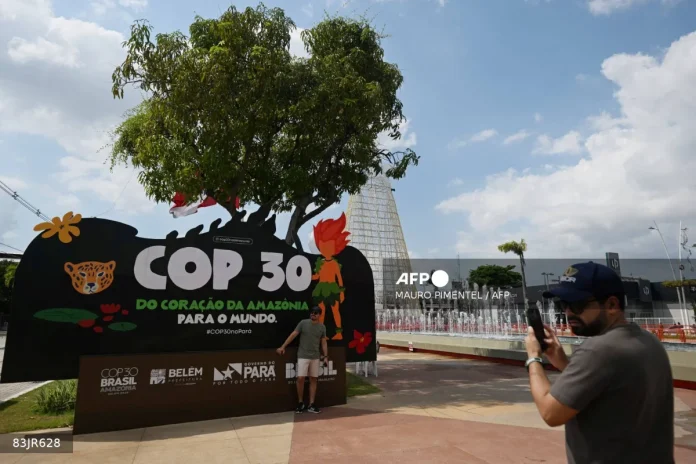COP30 opens in Brazil’s Amazon with 50,000 delegates facing critical climate cooperation challenges amid deforestation and funding disputes
BELÉM: The world’s most challenging climate negotiations in years begin today as 50,000 participants gather in the Amazon rainforest city of Belém for COP30.
Last year’s UN climate conference in fossil fuel-rich Azerbaijan carried the scent of oil, but delegates now face the heavy, humid air of the Amazon.
Brazilian President Luiz Inacio Lula da Silva insisted on hosting despite severe hotel shortages to showcase the rainforest’s environmental realities.
“It would be easier to hold the COP in a rich country,” Lula declared in August. “We want people to see the real situation of the forests, of our rivers, of our people who live there.”
The Amazon rainforest plays a vital role in absorbing greenhouse gases but suffers from deforestation, illegal mining, pollution, and rights abuses against Indigenous peoples.
Brazil has been diplomatically active but lags on logistics, with many pavilions still under construction just before the conference opened.
“There is great concern about whether everything will be ready on time from a logistical standpoint,” a source close to the UN told AFP. “Connections, microphones, we’re even worried about having enough food.”
The core uncertainty involves whether nations can unite around responding to catastrophic warming projections and avoiding rich-poor nation clashes.
Critical questions include funding for climate-affected countries like hurricane-devastated Jamaica and typhoon-battered Philippines.
Lula’s recently proposed fossil fuel “roadmap” faces scrutiny as oil interests have rallied since the 2023 Dubai agreement to transition away from fossil fuels.
“How are we going to do it?” asked Andre Aranha Correa do Lago, the Brazilian COP30 president. “Is there going to be a consensus about how we are going to do it? This is one of the great mysteries in COP30.”
UN climate meetings have continued for 30 years since the 1992 Earth Summit in Rio de Janeiro, culminating in the Paris Agreement’s 1.5°C warming limit.
UN chief Antonio Guterres recently acknowledged breaching the 1.5°C threshold is “inevitable” but urged minimizing the overshoot duration.
Small island nations are fighting to keep the 1.5°C goal central to negotiations despite growing pessimism about achieving it.
“1.5 degrees is not just a number, not just a target, but that’s a lifeline,” said Manjeet Dhakal, an advisor to least developed countries. “We cannot be a part of any decision where there is a discussion about (how) we can’t achieve 1.5 degrees.”
The United States is absent from climate talks for the first time, though former President Donald Trump commented on local deforestation for a new road near Belém. – AFP








